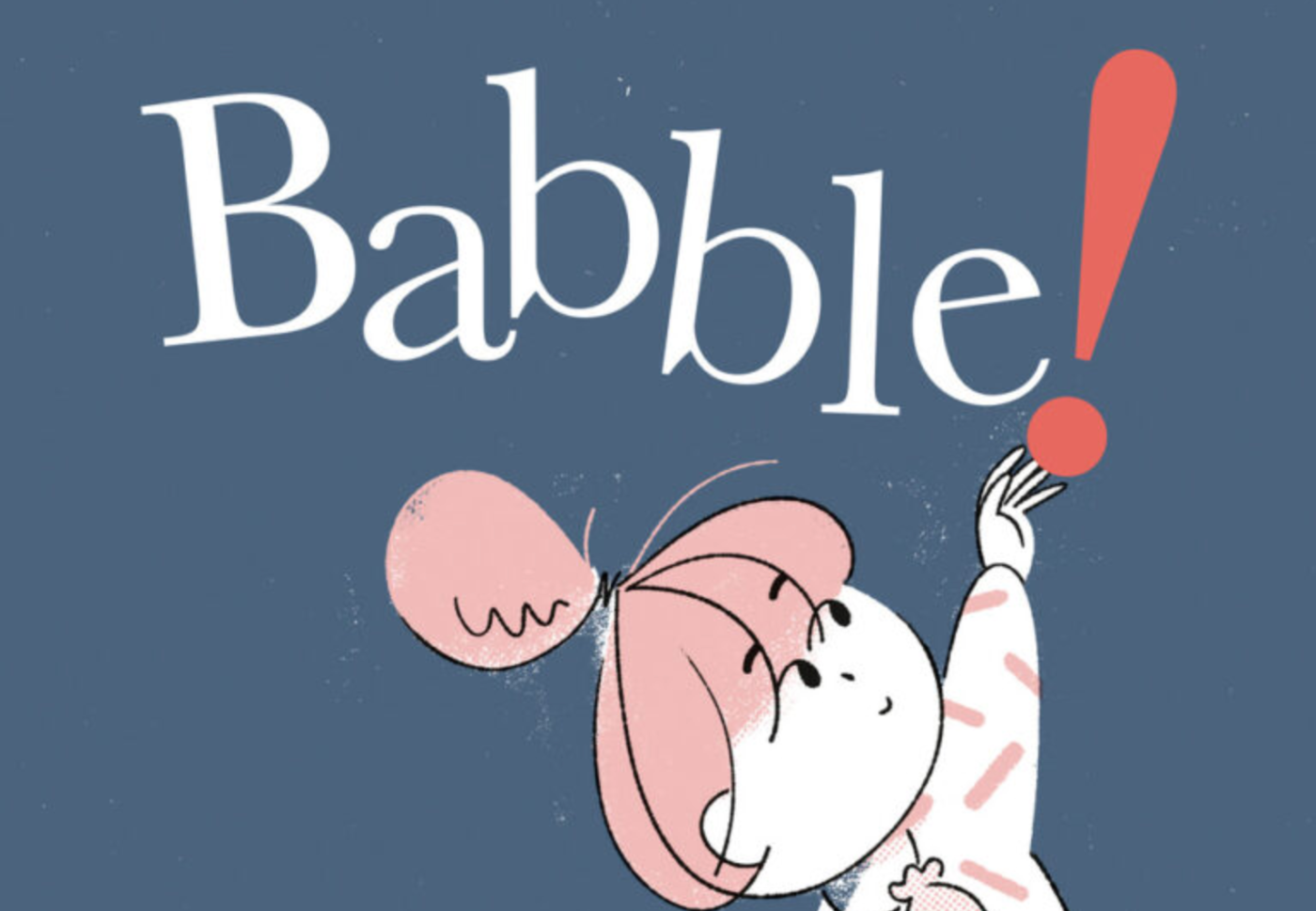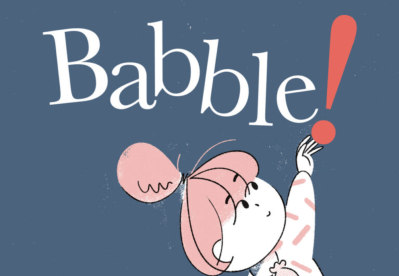When we pause in late November to reflect upon the many things for which we are thankful, periods, commas, and exclamation points are probably not the first things that leap to mind. But we should not take these humble punctuation marks so much for granted—That, at least, is the lesson of Babble! and How Punctuation Saved It, a charming little book by Caroline Adderson, whimsically illustrated by Roman Muradov.
Aimed at children—though I hasten to add, thinking of the many college papers I have graded over the years, not only at children—the book begins like this: “In a village called Babble in a once upon a time country there were people who lived in confusion when they talked to each other they could not tell the difference between what they were saying and what they were thinking all the words just ran together” (sic, it goes without saying). It is a little difficult to know where exactly to end that quote, for obvious reasons, but you get the idea. The frustrated and bewildered villagers, who say everything “in the same flat monotonous voice,” are helpless until one day a young girl shows up with a small bag around her neck.
From the bag she proceeds to release, one after another, a series of puzzling little items: first a period, then a question mark, then quotation marks, then an exclamation point, and finally, last but not least, a comma (which does double duty as an apostrophe when raised above the letters). As the villagers learn to use these mysterious gifts, their speech gradually acquires order and clarity, they become intelligible to each other, and real life in community—such as the celebratory feast they have near the book’s end—becomes possible for the first time. The evidence that humans are political animals, Aristotle famously argued at the beginning of his Politics, is that we have reason and speech. Perhaps he ought to have said reason, speech, and punctuation.
Adderson and Muradov nicely incorporate some humorous twists into their engaging compositional fable. At one point a little girl falls into a river. She is on the verge of drowning and cannot make her cries for help heard. Fortunately, the strange visitor unearths an exclamation point from her sack in the nick of time, supplying the girl’s shouts with some extra volume so that they rise above the din. Similarly, both cannibalism and “catibalism” threaten to disrupt the villagers’ feast when it appears that some people intend to eat not only Grandpa but also their cats. At just the right moment, however, the comma rides to the rescue, cleverly dispelling ambiguity with its abilities to signal direct address and separate items in a list.
Commas, come to think of it, always seem to give my students particular difficulties. It would probably not go over well if I asked students in a political science course to purchase an illustrated children’s book about punctuation. But they would certainly be none the worse for it. Babble! is a delightful parable that will instruct and entertain both young and old alike.
It is also, ultimately, a book about gratitude, making it unexpectedly appropriate reading for Thanksgiving weekend. By the end of the book, the chaos has subsided: Babies have stopped crying, family members have discovered that they love each other, catastrophe has been averted, and Grandpa is feasting rather than being feasted upon. Even the dogs have stopped barking furiously and the cats purr contentedly. Cause to celebrate, indeed. As the villagers proclaim at the story’s end, “Once upon a time it seemed as though we were living in darkness. We didn’t listen to each other. We didn’t understand one another. But now we understand. We communicate. We love!” The parallel is probably not intentional, but one is tempted to hear in those words echoes of John’s gospel: In the beginning was the Word, the Word through whom all things were made and which shines in the darkness, giving light to the world.
As we enjoy our Thanksgiving leftovers therefore I trust everyone still has a bit of turkey and some mashed potatoes on hand lets all give three cheers for the heroic punctuation mark For periods For quotation marks For commas And certainly for exclamation points also
I beg your pardon. Let me try that once more.
As we enjoy our Thanksgiving leftovers, therefore—I trust everyone still has a bit of turkey and some mashed potatoes on hand?—let’s all give three cheers for the heroic punctuation mark: For periods! For quotation marks! For commas! (And certainly for exclamation points also.)
Happy Thanksgiving, everyone.






Please note that we at The Dispatch hold ourselves, our work, and our commenters to a higher standard than other places on the internet. We welcome comments that foster genuine debate or discussion—including comments critical of us or our work—but responses that include ad hominem attacks on fellow Dispatch members or are intended to stoke fear and anger may be moderated.
With your membership, you only have the ability to comment on The Morning Dispatch articles. Consider upgrading to join the conversation everywhere.